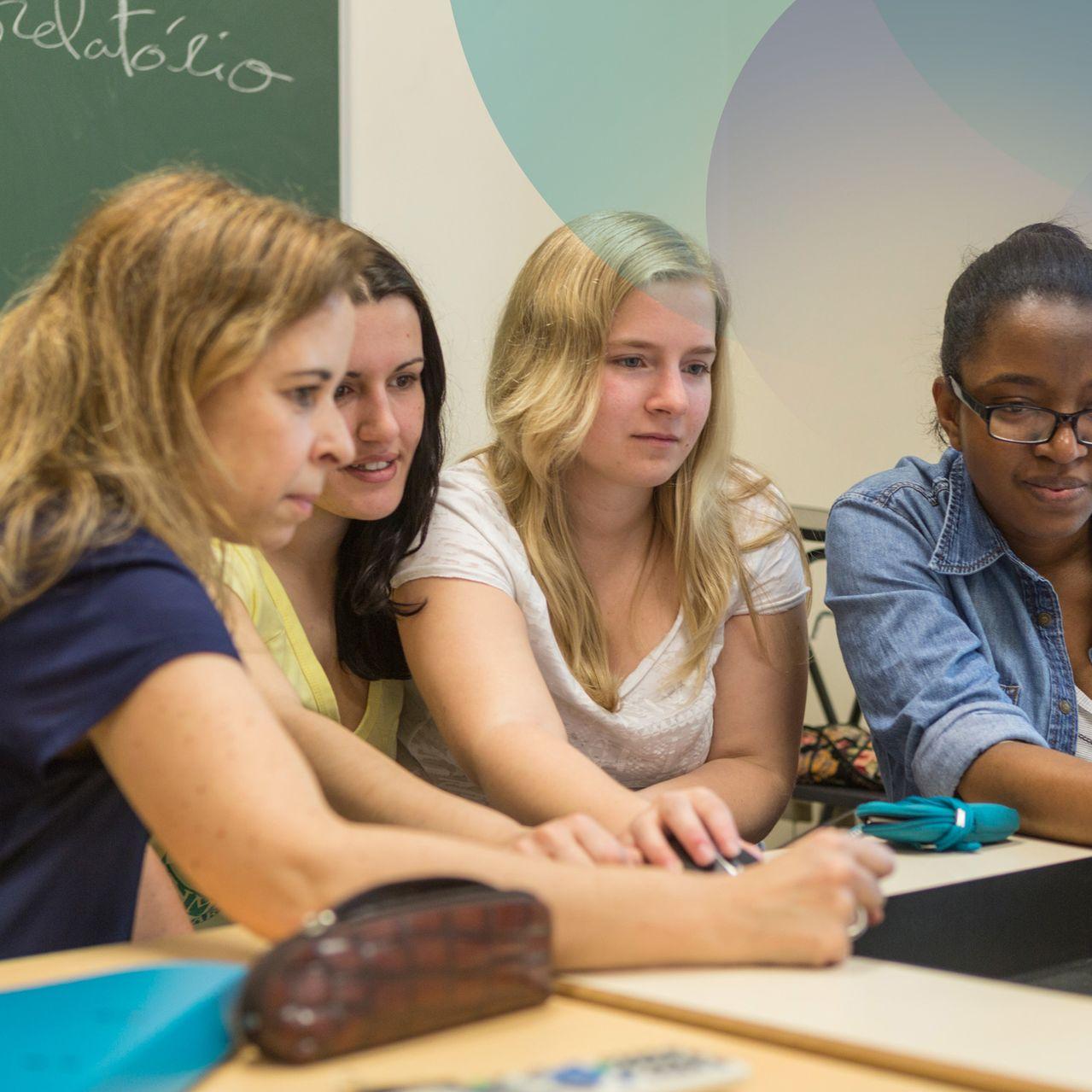How to create a Collaborative Course
Administrative guidelines and instructions for developing Collaborative Courses
What are Collaborative Courses?
Collaborative Courses , also referred to as Collaborative Educational Offerings, are
Courses or Modules
Single-standing or a group of few courses that do not lead alone to a degree but can be part of a programme
Credit-bearing
These courses or modules must give credits (ECTS) or be accreditable.
Co-creations
These courses or modules are co-developed and/or co-taught by at least two Unite! partner universities
Unite! Collaborative Courses are a great way to
- Upscale resources by sharing expertise
- Build meaningful connections with students and colleagues from around the world
- Explore new pedagogical approaches
- Expand your network
In this online toolkit, we use two types of collaborative courses:
Blended Intensive Programmes
BIPs
A Flexible International Experience
Combine online and face-to-face learning formats.
Teachers from 3+ universities work together to build an interdisciplinary BIP course.
Short-term mobility allows an international experience while enhancing accessibility and inclusion.
Collaborative Online International Learning COIL
Learn Anywhere
Connect teachers and students from Unite! to learn collaboratively online.
Teachers work together to design and implement an online course.
Students can engage in intercultural learning and network internationally from home.
When creating a Collaborative Course, keep in mind that...
It takes time to plan this! If you want to start a new collaborative course, contact your local support well in advance.
Remember that the academic calendars in different countries can differ a lot.
Each university has its own work culture and regulations - try to be considerate and flexible!
Make sure the correct people are kept in the loop! Do not assume that somebody will inform them.
Discuss with your colleagues what kind of expertise can complement each other to provide added value for the students.
Knowing your partners (and their institutions) in advance is key to the successful the successful creation of such courses.
Collaborative Courses have the following benefits...
...for teachers:
-
Sharing workload with a colleague
-
Meaningful connections with students and colleagues from around the world
-
Expanded network within your area of expertise
-
Professional development and career advancement
...for students:
-
Access to teaching expertise in other Unite! universities
- Possibility to enhance intercultural competencies through interaction with peers from the partner university
- Enabling collaboration on projects and learning together despite being physically separated
-
International
experiences accessible to a broader range of students, democratising global
learning
Want to learn more? Find all the details on the next pages:

Blended Intensive Programmes
Blended
Intensive Programmes (BIPs) initiated by Erasmus+ open new doors to strengthen
transnational cooperations between Unite! partners and to promote
innovative learning and teaching methods. Become part of it!
Learn more

Collaborative Online International Learning - COIL courses
Collaborative Online International Learning (COIL) courses bring together students from different countries to collaborate and learn jointly using online platforms. Teachers collaborate by sharing knowledge, co-building the curriculum, and utilizing technology to create an interactive and culturally diverse learning environment.
Contact us!

BIP
Local contacts
